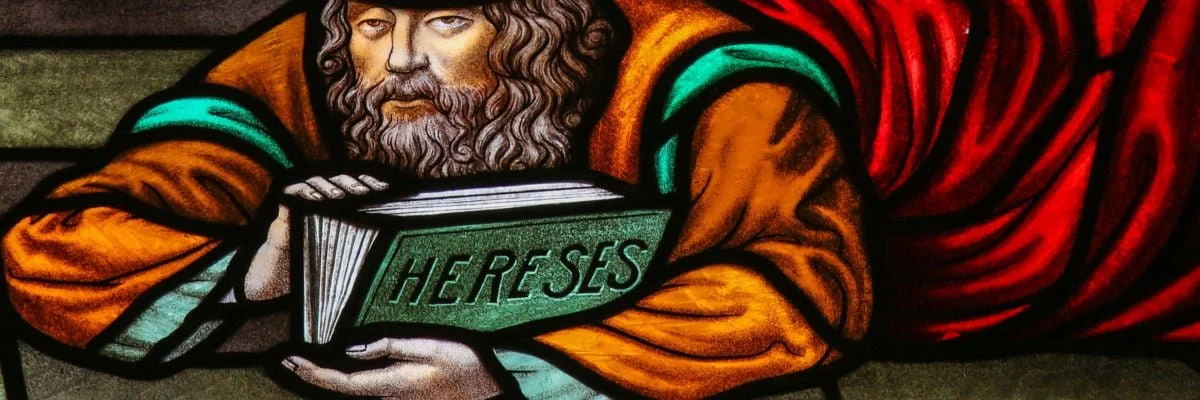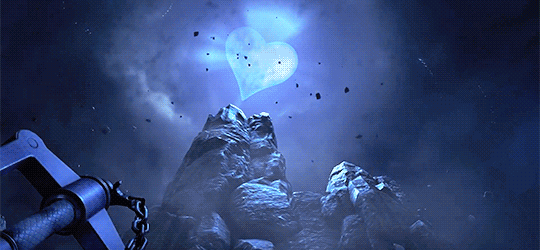Modern Mythmaking & the Fragility of Justice: A Philosophical & Theological Analysis of The Boys & Invincible
In this essay, Jacob Caplinger explores how The Boys and Invincible challenge traditional superhero narratives through “evil Superman” tropes and violence as spectacle. He analyzes The Boys’ sharp political satire and Invincible’s confrontation with Darwinian nihilism, highlighting the profound failures of father figures and rich religious symbolism that deepen these stories’ moral and cultural complexity.
An Octopathic Odyssey: Exploring the Philosophical and Theological Symbols of Octopath Traveler
In this essay, Jacob Caplinger examines the philosophical and theological themes within Octopath Traveler. He explores how the game's characters, lore, and symbolism reflect deeper moral and spiritual ideas. Drawing connections to concepts like the Eightfold Path, Caplinger highlights the game's message about virtue, enlightenment, and human nature. The essay encourages readers to see Octopath Traveler as more than just a game—viewing it as a meaningful exploration of morality and spirituality.
Summoning the Self: Psychology, Theology, & Philosophy in Persona 3, 4, & 5
In Persona 3, 4, and 5, the concept of “Persona” transcends its Jungian roots to explore identity as layered, dynamic, and deeply symbolic. These supernatural manifestations of the self confront repressed truths, drawing from Carl Jung’s theories of the persona and shadow. Coupled with Tarot archetypes, the series presents human growth as a narrative of choice, transformation, and integration. By blending philosophy, psychology, and myth, Jacob Caplinger shows how the Persona series invites players to reflect on their own journey toward wholeness, making it not just a game, but a profound meditation on what it means to become oneself.
In Nomine Christi: An Essay on Oneness Pentecostalism as Heresy
Jacob Caplinger's essay critically examines the evolving concept of heresy, tracing its historical use as a tool of persecution to modern efforts at redefinition. He explores how heresy relates to core Christian doctrines, particularly the Trinity, and analyzes contemporary movements like Oneness Pentecostalism, which challenge orthodox views. Caplinger argues that heresy, in a post-Reformation context, should be de-weaponized to foster open theological growth while emphasizing the importance of doctrinal distinctions that uphold biblical truth. His nuanced discussion encourages a balanced approach—protecting core salvation beliefs without resorting to destructive labels—highlighting the ongoing importance of theological clarity and grace.
A Christian Purge: An Analysis of Purgatory’s Development through the Middle Ages
Jacob Caplinger's essay offers a comprehensive exploration of the doctrine of purgatory, tracing its origins, biblical foundations, and historical development. He examines key theological figures, biblical texts, and cultural influences, highlighting how the concept evolved from early Christian writings through the Middle Ages to contemporary interpretations. Caplinger critically analyzes the distinctions between scriptural evidence and traditional teachings, ultimately arguing that while post-mortem purification aligns with scripture, the idea of a specific, temporal location like purgatory is unsupported. His nuanced evaluation emphasizes prayer, grace, and the importance of distinguishing between doctrinal speculation and divine revelation.
A Kid From Queens: A Philosophical, Theological, & Psychological Analysis on Spider-Man
In this exploration, Jacob Caplinger examines Spider-Man as the Everyman hero—an ordinary figure shaped by extraordinary choices. From Tobey Maguire to Miles Morales, each iteration reflects a shared moral thread: with great power comes great responsibility. Grounded in virtue ethics, Spider-Man’s mythos celebrates courage, self-sacrifice, and the tension of dual identity. Even powerless versions of Peter Parker still choose good, proving heroism lies in character, not capability. Finally, through suffering—from Morlun’s brutality to the comfort of the One-Above-All—Peter’s story becomes a theodicy, confronting loss with hope. Spider-Man endures not as a symbol of perfection, but of perseverance.
Stronger than Steel, Softer than Flesh: Theological and Philosophical Reflections on Superman
In this essay, Jacob Caplinger explores the philosophical and theological dimensions of Superman as a modern myth and moral exemplar. Challenging simplistic comparisons to Christ or Nietzschean Ubermensch ideals, Caplinger argues that Superman’s true strength lies not in his power but in his restraint, compassion, and voluntary humanity. Drawing from themes of kenosis, virtue ethics, and moral formation, the essay contends that Superman’s refusal to dominate—despite godlike ability—embodies an incarnational ethic. By juxtaposing Superman with darker analogues like Homelander, Caplinger illustrates how character, not capacity, defines moral greatness.
From Dark to Light, Dualism to Daoism: A Philosophical Analysis on Kingdom Hearts’ Metaphysics & Lore
Jacob Caplinger analyzes the metaphysical and moral themes in Kingdom Hearts through Platonic and Daoist frameworks. This essay explores the χ-Blade as a Platonic symbol of archetypal unity, examines the tension between Light and Darkness, and critiques the series’ inconsistent moral dualism. Caplinger then shifts to a Daoist interpretation, arguing that Kingdom Hearts transcends dualism by emphasizing the interdependence and integration of Light and Darkness, as seen in characters like Riku and Terra. Ultimately, this essay contends that the series moves beyond traditional dualism to a more harmonious understanding of cosmic balance.
Who is Justice? “I AM”: A Philosophical & Theological Analysis on Death Note
In Jacob Caplinger’s essay on Death Note, he explores the anime’s moral and metaphysical landscape through four interwoven themes: justice, intellect, free will, and religious allegory. Juxtaposing L’s deontological pursuit of truth with Kira’s utilitarian god-complex, Caplinger interrogates whether power corrupts absolutely or simply reveals a person’s core. He challenges Light’s perceived genius, showing it as propped up by supernatural aid, while figures like Near and Mello succeed through raw intellect. The essay also probes deistic indifference via Ryuk and Light’s shifting moral compass, especially during his amnesiac phase. Finally, Caplinger reads the Death Note as forbidden fruit, casting Light as Adam, Ryuk as the serpent, and L as a possible Gnostic or Christ-figure resisting divine pretension.
Murdock’s Cross: The Philosophical Significance of Daredevil
Jacob Caplinger’s Murdock’s Cross: The Philosophical Significance of Daredevil explores the themes of justice, violence, identity, faith, and redemption in Netflix’s Daredevil. Using frameworks like Nietzsche’s will to power and Jung’s individuation, the essay examines Matt Murdock’s struggles as a blind lawyer and vigilante, highlighting his battle with institutional failures, moral boundaries, and inner turmoil. Grounded in Catholicism, Matt’s journey wrestles with guilt, grace, and redemption, portraying justice as a painful, ambiguous pursuit in a broken world.
A Messianic Avatar: A Theological Comparison of Avatar: The Last Airbender
While assisting Dr. Samuel Youngs on his chapter in Theology in Avatar: The Last Airbender, Jacob Caplinger explored the series’ subtle but rich Christian themes, particularly as embodied in Aang’s redemptive journey. Though rooted in Eastern thought, ATLA also echoes biblical metaphysics—portraying Aang as a reconciler who bridges the spiritual and physical worlds, mirroring Christ’s role as divine mediator. From the Avatar State’s reflection of the hypostatic union to the swamp’s depiction of unity akin to John 15:5 and 1 Corinthians 12, the series weaves themes of interconnectedness, restorative justice, and agape love that resonate deeply with Christian theological reflection.
A Titanic Dilemma: Nihilism, Existentialism, & More in Attack on Titan
Attack on Titan charts a philosophical trajectory that begins with nihilism in its early seasons, transitions into existentialism as characters gain self-awareness and powers, and ultimately grapples with the burden of freedom and free will. Jacob Caplinger articulates how this progression is embodied in Eren Yeager’s transformation from a hopeful figure to one willing to sacrifice everything, including humanity, in the pursuit of freedom.
The Curse Between Us: An Analysis on ἀγάπη Between Jujutsu Kaisen’s Gojo & Geto
This essay explores the complex and deeply intimate relationship between Suguru Geto and Satoru Gojo from Jujutsu Kaisen through the lens of ἀγάπη—a self-giving, enduring form of love. Moving beyond surface-level notions of rivalry or simple ideological divergence, the paper argues that their bond is rooted in metaphysical complementarity and existential dependency. Drawing upon the insights of Søren Kierkegaard, Friedrich Nietzsche, Martin Heidegger, and Jacques Lacan, Jacob Caplinger presents Gojo and Geto not merely as narrative foils, but as co-constitutive selves—each defined, strengthened, and eventually shattered by the presence and absence of the other.
To Be the Best: A Philosophical Analysis on Strength & Ego in Blue Lock & Jujutsu Kaisen
In this philosophical deep-dive, Jacob K.R. Caplinger explores how Blue Lock and Jujutsu Kaisen dramatize the struggle between ego, strength, and selfhood. Drawing from Nietzsche, Kierkegaard, Lacan, and Aristotle, the essay interrogates whether strength is about domination—or differentiation. Through characters like Gojo, Isagi, Yuji, and Barou, we witness that the path to becoming is rarely linear, and that the burden of greatness often comes with existential cost. This piece is for anyone who’s ever asked: Who am I, when no one is watching—and who do I become, when everything is at stake?
Of Heart and Being: Philosophical Reflections on Ontological Personhood & Identity in Kingdom Hearts
With compelling analysis of artificial beings, memory manipulation, and metaphysical reintegration, this essay reframes Kingdom Hearts as a serious philosophical text—one that challenges essentialist views of the self and invites us to imagine identity as a dynamic, relational, and even artificial process. Drawing on thinkers like Locke, Hume, Parfit, Sartre, and Metzinger, Jacob Caplinger tackles questions raised by characters like Sora, Xehanort, Roxas, Xion, and Replica Riku. What does it mean to have a heart? A memory? A will? When identity is fragmented or fabricated, what remains of the self?For anyone fascinated by the boundaries of being, this paper is a must-read.
Essays on Philosophical & Psychological Theories of Personhood & Identity
In dialogue with both classical and contemporary metaphysics, Jacob Caplinger argues for view of personhood resists static, essentialist accounts and instead foregrounds identity as a dynamic, relationally-constituted phenomenon. He argues that personhood is not reducible to memory, rationality, or even embodiment alone, but arises from a synthesis of affective continuity, narrative coherence, and interpersonal recognition. The self is neither a fixed substance nor a mere construct, but an ontological process—capable of fragmentation and reintegration without total dissolution.















